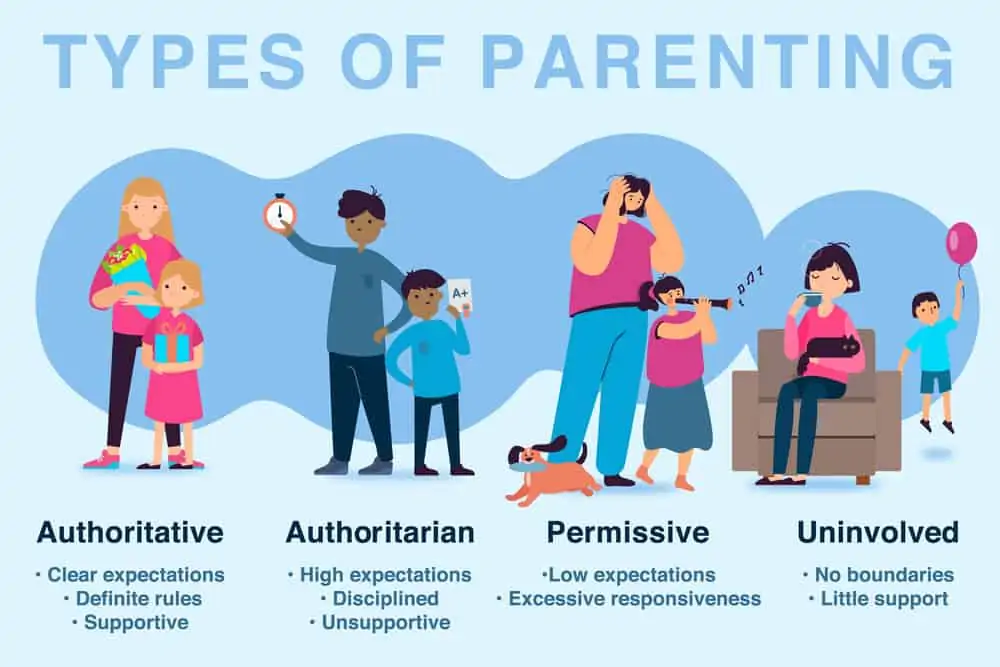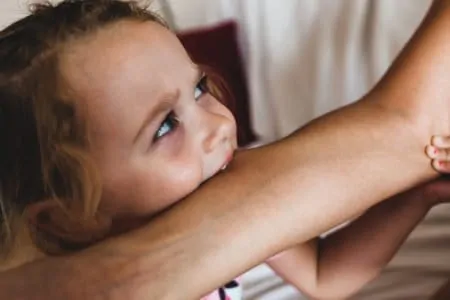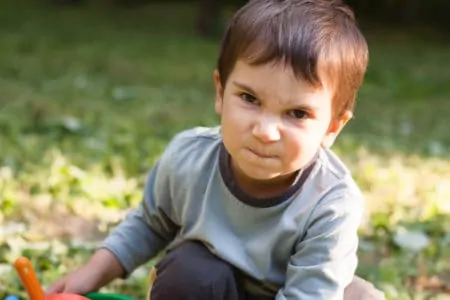You might wonder if your child’s personality comes from their genes or how you raise them. This is the classic nature versus nurture debate.
Most experts today agree it is a combination of both. While you can’t change your child’s DNA, understanding the study of parenting styles can help you raise a confident, kind, and successful human.
Here is what you need to know about the different parenting styles and the impact they have on your family.
Key Takeaways
- Four main styles: Psychologists generally categorize parenting into four types: authoritative, authoritarian, permissive, and uninvolved.
- The gold standard: Authoritative parenting is widely considered the most balanced approach for fostering a child’s emotional and social growth.
- Long-term impact: Your parenting style influences your child’s behavior, coping mechanisms, and future relationships.
- How to adjust: You can become a more authoritative parent by setting clear rules, listening to your child, and letting them learn from mistakes.
What Are Parenting Styles?

Parenting styles are the standard strategies parents use when interacting with their children.
These styles represent the overall emotional climate in the home, created by how a parent guides, disciplines, and supports their kids (1).
While every family is different, researchers group child-rearing strategies into four main categories. These include the following:
- Authoritative.
- Authoritarian.
- Permissive.
- Uninvolved.
Each style has unique characteristics and consequences for a child’s development.
Why Parenting Styles Matter
Your parenting style shapes how your children grow and develop in almost every area of life.
While some of your child’s personality comes from their inherent nature, a significant portion of how they interact with the world stems from how they are raised.
Your approach affects your child’s emotional, mental, and physical development. This impact often lasts a lifetime. It can influence their career choices, their success in relationships, and even how they eventually raise their own kids.
Parenting Styles vs. Parenting Practices
There is a subtle difference between a “style” and a “practice.” A parenting style is the general, overarching way you interact with your child, while practices are specific actions.
When defining a mother or father’s style, you do not look at a single moment. Instead, you look at actions taken over a sustained period. You consider the “feel” of the interactions and the general emotional climate.
Parenting practices are the individual actions a parent takes in specific situations.
If you want to define your own style, note your specific actions across different situations. These individual actions are your practices. When you view those practices as a whole, a pattern emerges. That pattern is your parenting style.
The Four Types of Parenting Styles

In the 1960s, developmental psychologist Diana Baumrind identified four elements she believed shaped successful parenting (2).
These elements focused on responsiveness versus unresponsiveness, and demanding versus undemanding behavior. Baumrind used these to identify three initial styles: permissive, authoritarian, and authoritative.
Building on Baumrind’s work, researchers Eleanor Maccoby and John Martin published a study in 1983 that split the permissive style into two distinct types: indulgent (permissive) and neglectful (uninvolved) (3).
Since then, new terms have emerged, such as free-range parenting and attachment parenting. However, these are often cultural definitions rather than psychological classifications.
Let’s take a closer look at the big four.
Authoritative Parenting
Authoritative parenting balances warm, supportive interaction with clear, consistent rules.
An authoritative parent holds high but achievable expectations. They provide the support necessary for children to meet those goals. These parents communicate openly, offer guidance, and use reasoning in two-way discussions.
However, authoritative parents are not pushovers. While they listen and reason, they also enforce rules. If a child breaks the rules, this parent uses positive discipline to correct behavior rather than harsh punishment.
For example, if a child wants to stay up past bedtime, an authoritative parent will listen to the request. If the reason is valid, they might adapt. If it is just an excuse, they kindly but firmly insist the child goes to bed, enforcing consequences if necessary.
In Summary
Authoritarian Parenting
Authoritarian parenting features high expectations and strict discipline but lacks warmth, guidance, or support.
This parent sets high standards for behavior and achievement but rarely helps the child meet them. Communication is generally one-way. Authoritarian parents are rarely interested in explanations or answering questions.
This style expects blind obedience and places little value on independent thought. They utilize punishment rather than discipline when rules are broken.
If a child refuses to go to bed, the authoritarian parent refuses to listen. They are likely to punish the child immediately for non-compliance without providing rationale or context.
In Summary
Permissive Parenting
Permissive parenting involves low expectations and excessive responsiveness to a child’s wants.
A permissive parent makes few demands and does little to promote independence. Often, the child directs the relationship while the parent meets every demand to avoid conflict.
While these parents are warm and loving, they set minimal rules and rarely enforce them.
If a child fights bedtime, the permissive parent usually caves in to avoid upsetting the child. They allow the child to stay awake until they eventually crash, rather than enforcing a healthy schedule.
In Summary
Uninvolved Parenting
Uninvolved parenting is defined by a lack of interest in setting boundaries or providing warmth.
An uninvolved parent makes few demands and sets few rules. The boundaries that do exist are rarely enforced. There is little meaningful communication, and the parent does nothing to encourage connection.
These parents may provide basic necessities like food and shelter, but they neglect emotional needs.
If a child refuses to go to bed, the uninvolved parent likely won’t notice or care. They are not interested in why the child is awake or in interacting with them. This style is best described as “absent” or “indifferent.”
In Summary
Modern Parenting Trends
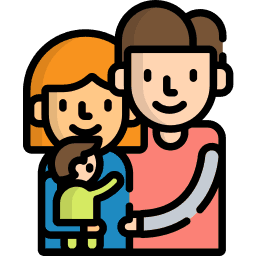
Many “new” parenting styles have roots in psychology but are defined by modern social contexts.
The term “helicopter parent” appeared in Dr. Haim Ginott’s 1969 book Parents & Teenagers, used by teens to describe parents who hovered over them. It became a common phrase in the early 1990s (4).
“Free-range parenting” gained popularity after Lenore Skenazy wrote about letting her 9-year-old ride the New York subway alone (5).
Helicopter Parenting
Helicopter parents focus heavily on achievement but are driven by a fear of failure.
They have high expectations but refuse to let their children fail and learn lessons. Instead, they hover and interfere to ensure success. They set rules but jump in to “fix” things before the child faces consequences.
This approach often results in children with low self-esteem and high anxiety. For instance, if a student gets a bad grade, the parent might call the teacher to argue rather than letting the child resolve the issue.
In Summary
Lawnmower (Snowplow) Parenting
Similar to helicopter parenting, lawnmower parents are determined to protect their children from any struggle. However, instead of just hovering, they actively “mow down” any obstacles in their child’s path.
These parents might rush a forgotten lunch to school or demand a coach give their child more playing time. While the intention is to help, it prevents children from developing resilience and problem-solving skills.
Free-Range Parenting
Free-range parenting encourages independence and freedom, coupled with warmth and guidance.
This is often a cultural or subjective term. In one area, letting a 9-year-old go to the park alone is acceptable. In another, it might be seen as neglect, potentially leading to legal trouble (6).
In Summary
Attachment Parenting
Attachment parenting focuses on building a fierce emotional bond. These parents prioritize physical closeness, often through baby-wearing or co-sleeping.
While two-way communication is encouraged, the level of structure varies. Some attachment parents are authoritative, while others lean toward permissiveness.
In Summary
Slow Parenting
Slow parenting avoids overscheduling. These parents believe structured activities stifle creativity. Instead, they give children space to discover the world at their own pace.
In Summary
Dolphin Parenting
Coined by Shimi Kang in The Dolphin Way, this style seeks a balance between the “jellyfish” (permissive) and the “tiger” (authoritarian).
The metaphor reflects the playful, intelligent, social nature of dolphins. In reality, it is essentially authoritative parenting with a different name.
How Parenting Styles Affect Kids

Most parents want to raise happy, respectful children who contribute to society. Here is how different methods impact that goal.
Authoritative Outcomes
Authoritative parenting generally produces kids who learn from their mistakes. They respect rules and boundaries because they understand the reasoning behind them.
These children cope well with adversity in adulthood. Because they were allowed to fail with support, they developed resilience. They are most likely to become emotionally well-adjusted adults who take responsibility for their actions (7).
Authoritarian Outcomes
Authoritarian parenting often results in children who fall into two categories:
- Anxious and fearful: These kids equate failure with punishment. They may lack coping skills and suffer from low self-esteem or depression.
- Rebellious: These kids reject rules entirely. They may react to adversity with anger rather than logic.
Children raised this way may struggle to find happiness or success in relationships due to a lack of social competence.
Permissive Outcomes
Permissive parenting can raise kids who struggle to self-regulate. Because they never had to control themselves in childhood, they often lack discipline as adults.
Since their parents solved every problem, these children may not develop coping skills. They often feel they are the center of the universe, leading to entitlement. This makes relationships and employment difficult, as they struggle to compromise or follow rules.
Uninvolved Outcomes
Uninvolved parenting creates the most difficulties for children. These kids often struggle with impulse control and appropriate social boundaries.
Without guidance or support, they fail to develop coping mechanisms. As adults, they are more likely to:
- Struggle with addiction or legal issues.
- Have low self-esteem and difficulty maintaining relationships.
- Be unable to advocate for themselves effectively.
Helicopter Outcomes
Children of helicopter parents often grow up to be:
- Anxious adults: They are paralyzed by the fear of making decisions without parental input.
- Resentful adults: They may eventually rebel against their parents’ overbearing control.
Limitations of Studies
Parenting studies show links, but they don’t always prove causation.
For example, do warm parents cause a child to be well-behaved? Or does a naturally well-behaved child make it easier for parents to be warm?
Additionally, parenting isn’t the only influence. Teachers, peers, and culture play massive roles. It is impossible to isolate parenting style as the single cause of an adult’s personality. Finally, people change. A parenting style might impact a child differently at age 5 than at age 15.
Which Parenting Style Is Best?
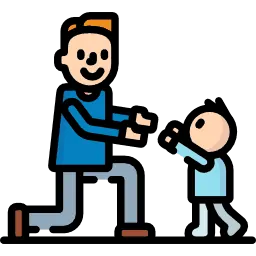
While there is no single “perfect” way to parent, the balanced approach of authoritative parenting is widely accepted as the most effective.
However, cultural context matters. In cultures where blind obedience is a safety necessity or a high social value, authoritarian parenting might be viewed more favorably. But for fostering emotional intelligence and independence, authoritative is usually the goal.
How to Be a More Authoritative Parent

If you want to adopt a more authoritative approach, try these practical steps:
- Listen actively: When your child shares thoughts or feelings, give them your full attention.
- Validate feelings: You don’t have to agree with their behavior to acknowledge their emotions. “I know you’re mad we have to leave, but it’s time to go.”
- Set clear rules: Explain expectations ahead of time so your child knows what is coming.
- Use proportional discipline: Match the consequence to the behavior. A minor mistake needs a warning, not a harsh punishment.
- Explain the “Why”: Tell your child, “We don’t hit because it hurts people,” rather than just saying, “Stop it.”
- Encourage independence: Let your kids try tasks on their own. If they fail, help them figure out what went wrong instead of fixing it for them.
- Model behavior: Be the person you want your child to become.
FAQs

Most of us don’t fit neatly into one box 100 percent of the time. Your style might shift based on stress, culture, or your child’s age.
You might generally be authoritative but slip into permissive habits when you are tired. That is normal. The goal isn’t perfection; it is consistency and awareness of how you relate to your child.
Don’t Panic

Parenting is tough, so don’t let the fear of “messing up” paralyze you.
We all make mistakes. No parent gets it right every single day.
Focus on being present and consistent. Acknowledge when you mess up, apologize to your child, and pledge to do better next time. That is what good parenting is really about.

